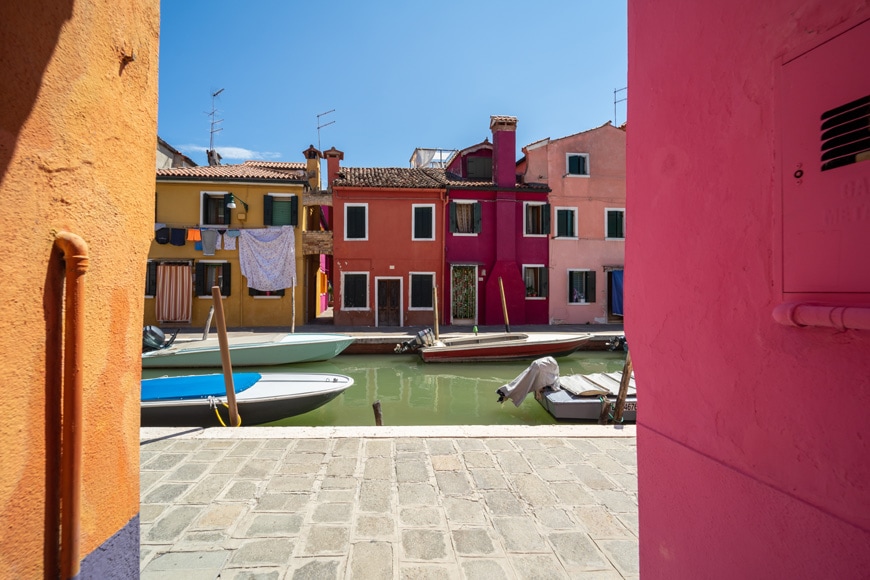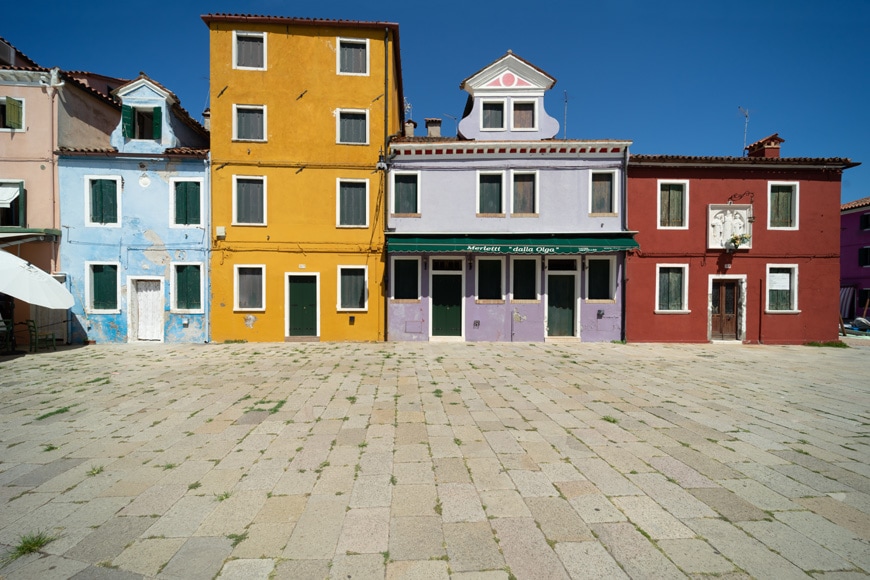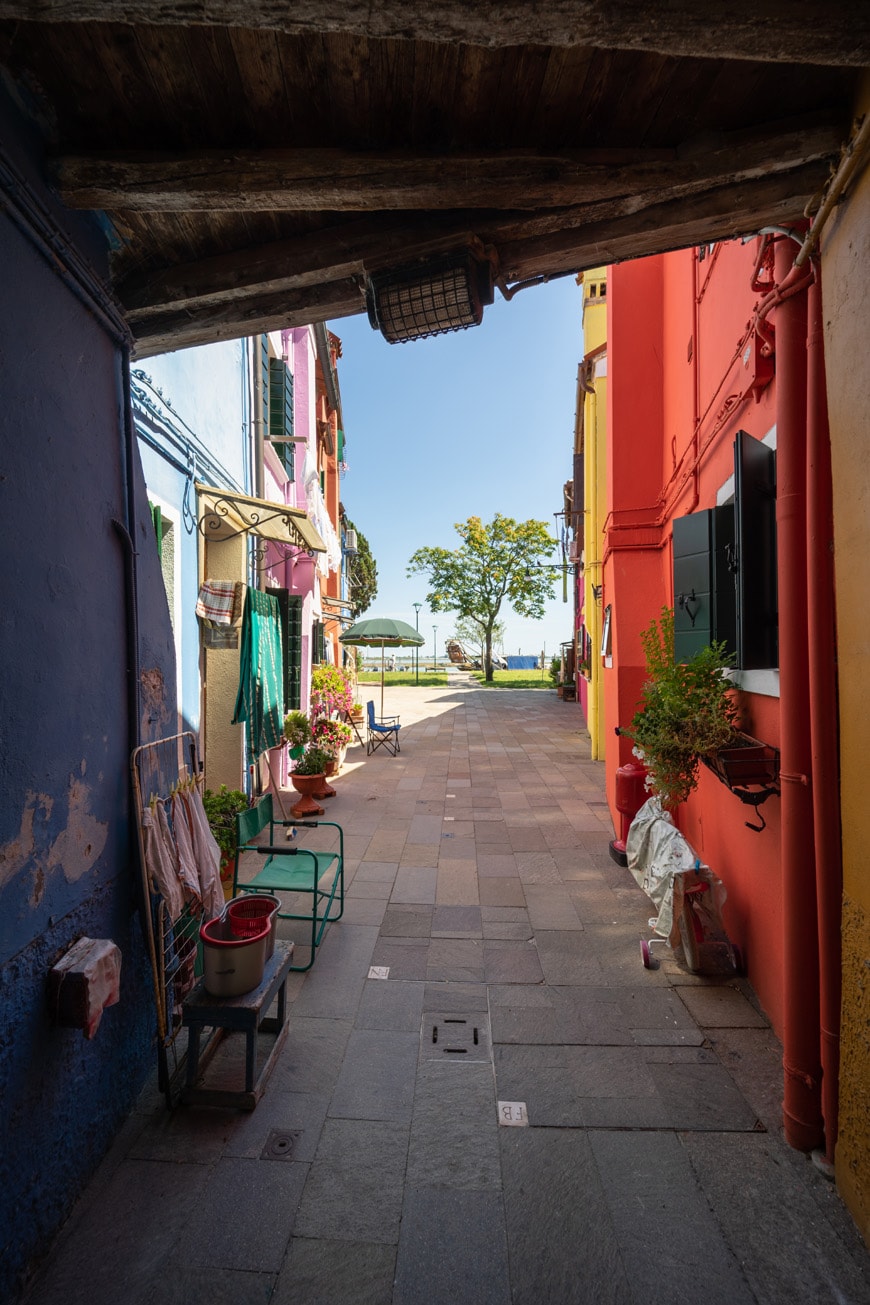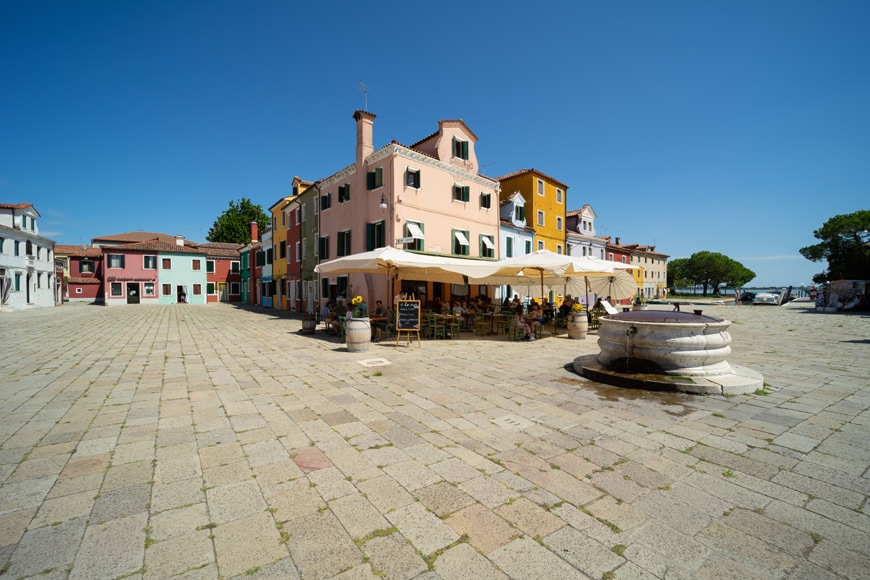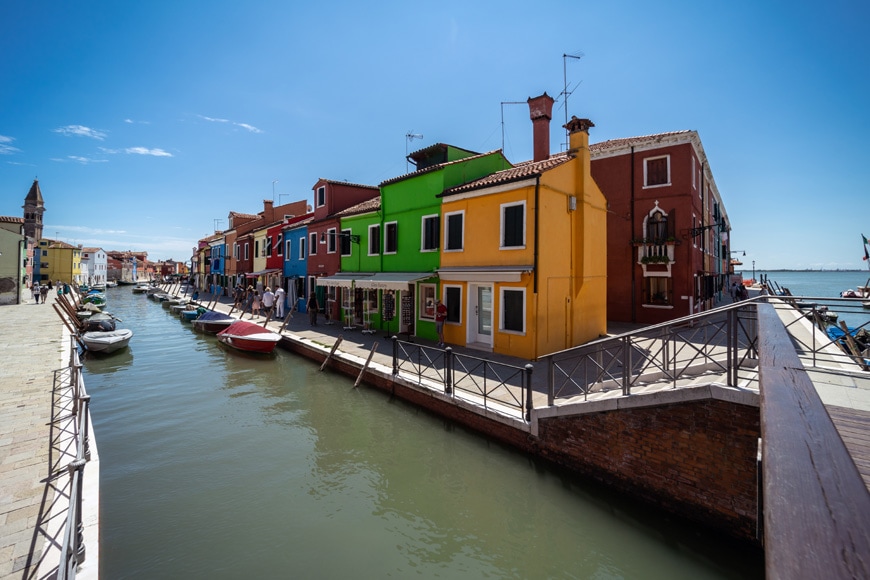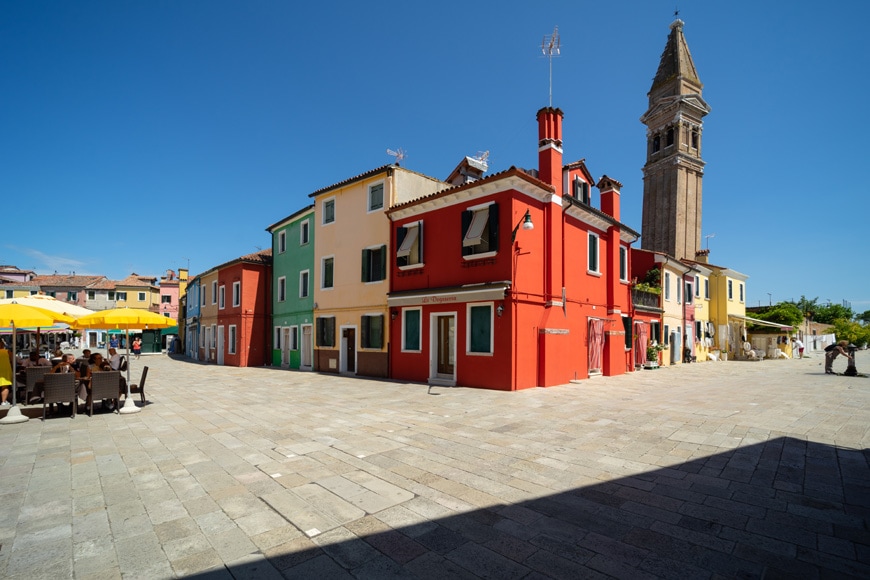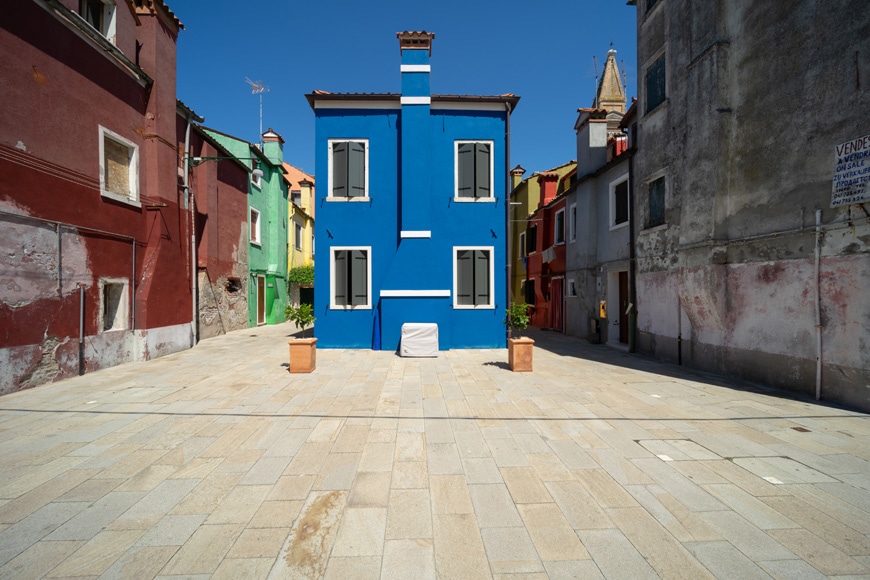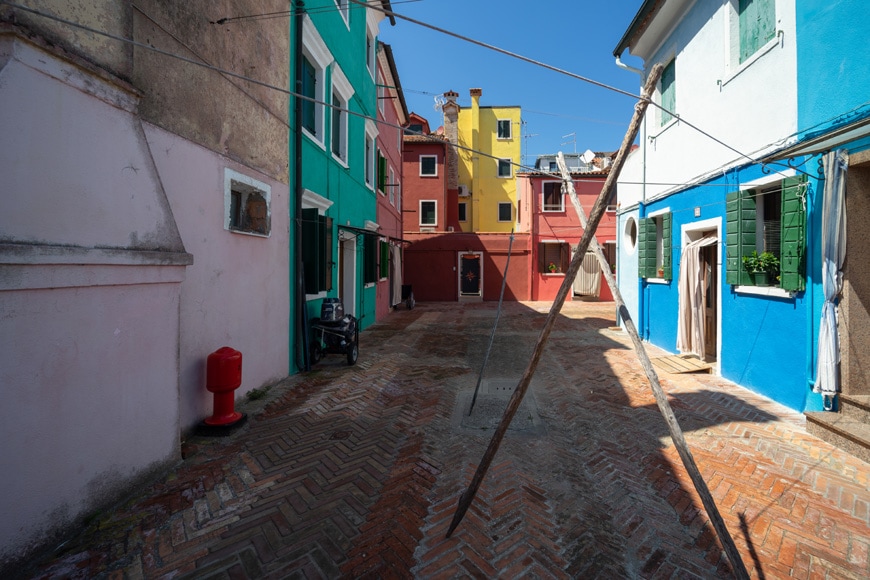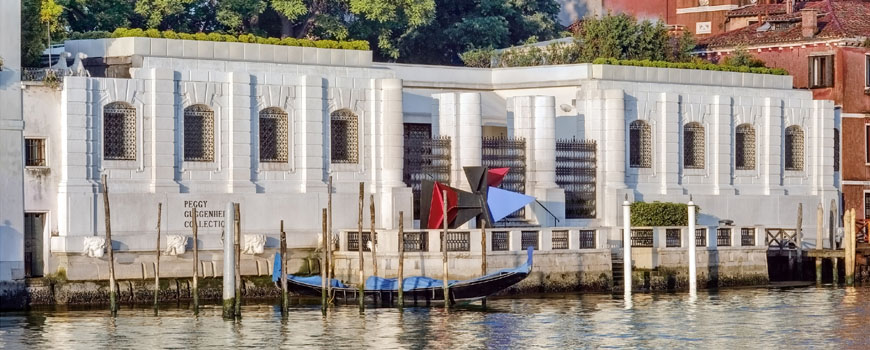Burano, a colorful microcosm in the heart of the Venetian Lagoon
A view of Burano’s historic center. Photo © Riccardo Bianchini / Inexhibit
From central Venice, it takes about 40 minutes by water bus to get to Burano, an island in the northeastern part of the Venetian Lagoon.
Comprising four smaller islands separated by three canals, Burano is one of the most famous among the over seventy known islands of the lagoon – some of which have vanished, some have been long since abandoned, and others are unnamed tiny pieces of land barely emerging from water – and is part of a surprising microcosm that brings you back to the origins of Venice.
As soon as you get closer to it, you feel immediately that this island is different from any other. From aboard the Vaporetto, after passing the island of Torcello, you start sighting the incredible color palette of Burano’s house facades and fencing walls – Pompeian red, cadmium orange, magenta, lemon yellow, sienna, cobalt blue, ultramarine, and midnight blue, olive, and emerald green follow one another in fanciful and impudent sequences. Vivid colors that look straight out of a fairy tale; yet, they have been here for centuries, shining in the sun, mirroring in and multiplied endlessly by the canals’ water.
The origin of this color galore is unclear, it was possibly invented to make it easier for the local fishermen to find their homes in the fog; what we know is that Burano’s multicolored houses are now a protected heritage, and their palette is rigorously regulated by the building code.
For a long time a settlement of fishermen and lacemakers, Burano (whose population is about 2,300) mostly lives on tourism today. If Venice’s authentic character can be perceived only by walking the silent streets more distant from its beaten paths, the charm of Burano amplifies when you stroll on the island’s edge. Here, unexpected views opening between the street frontages reveal a complex landscape in which the colorful urban fabric of Burano combines with meadows, cane thickets, and orchards, to blend with the waters of the lagoon in the distance.
A narrow street opens onto the “green belt” which encircles the urban area of Burano with the Venetian Lagoon in the background.
A view of Piazza Baldassarre Galuppi with an 18th-century water well.
Two canals cross in Burano’s center.
Picture gallery
A view of the town center with the bell tower of the medieval church of San Martino on the right.
The Museo del Merletto (Lace Museum) presents the 500-year-old history of Burano’s traditional lacemaking.
A cozy cafe with an alfresco terrace opening onto Burano’s waterfront.
Burano is surrounded by a sort of green belt with meadows, orchards, and cane thickets (and cats).
Though a popular travel destination, Burano still retains a relaxed and homely atmosphere; it is not unusual to see DIY drying racks in public streets and squares.
All photographs © Riccardo Bianchini / Inexhibit. All rights reserved.
copyright Inexhibit 2025 - ISSN: 2283-5474

